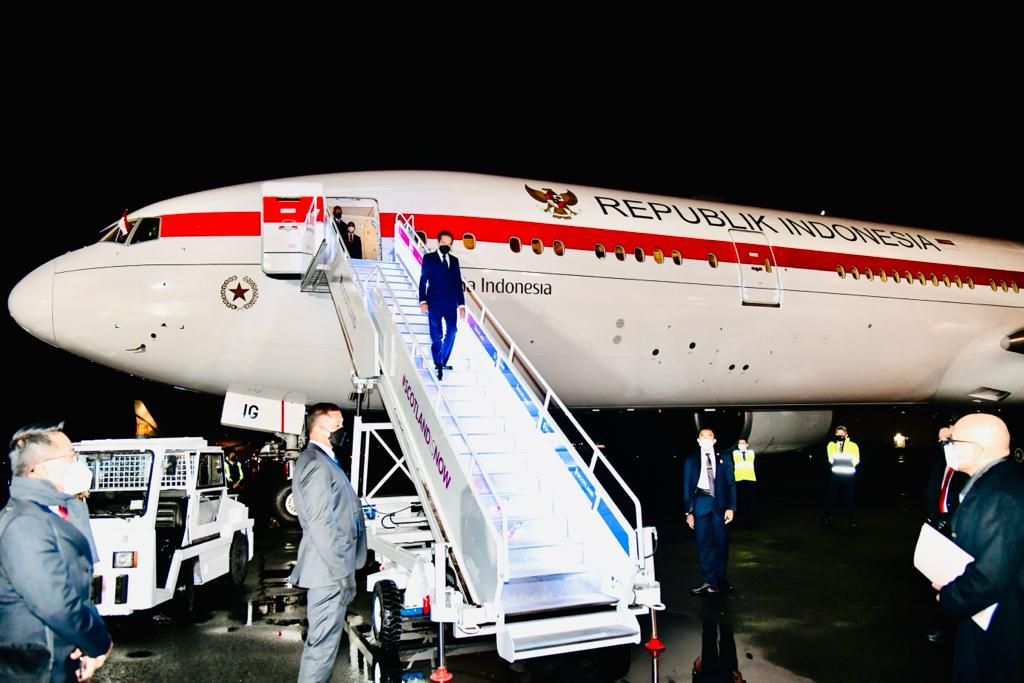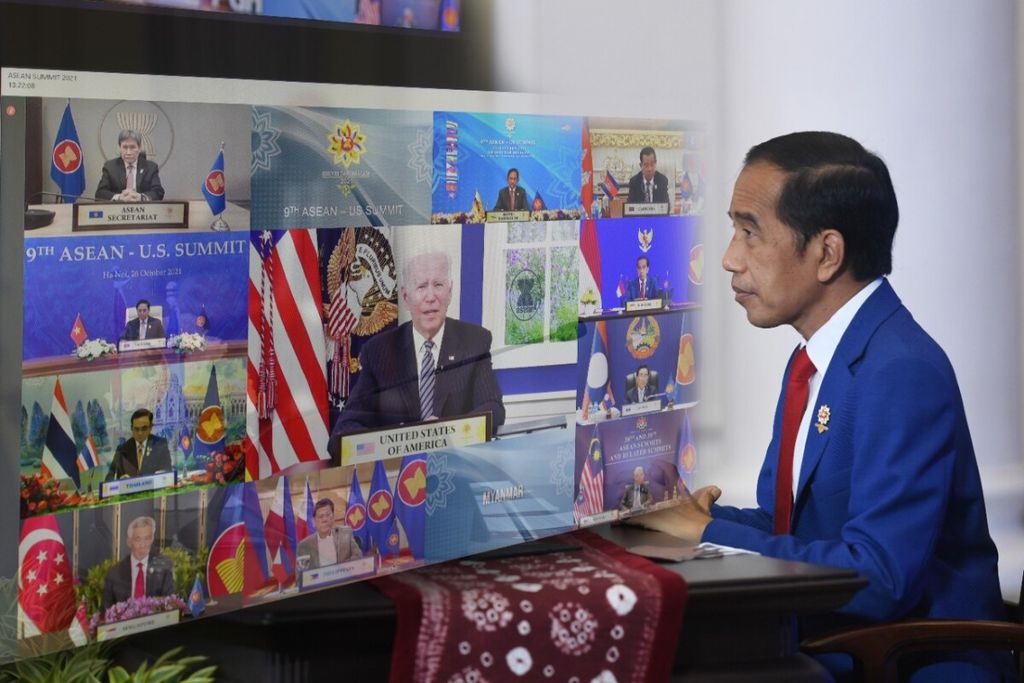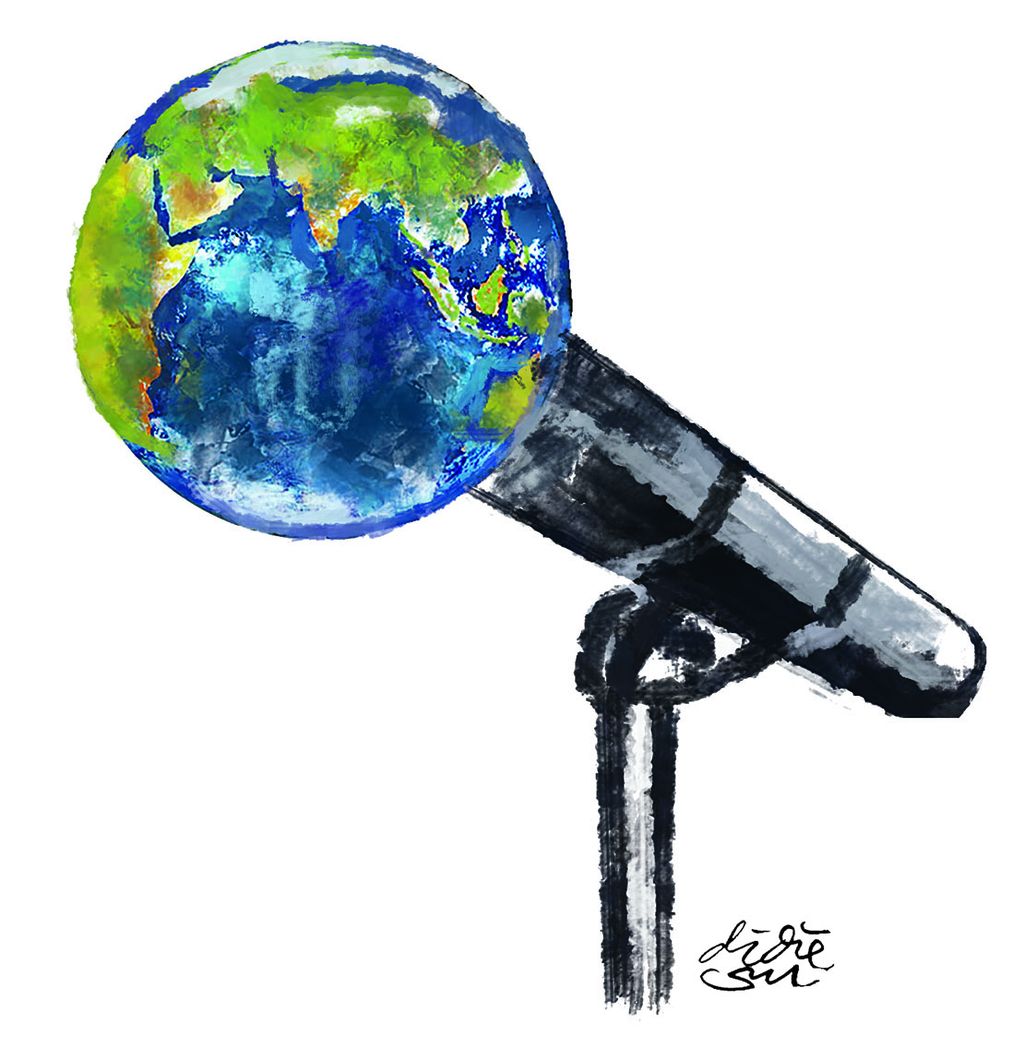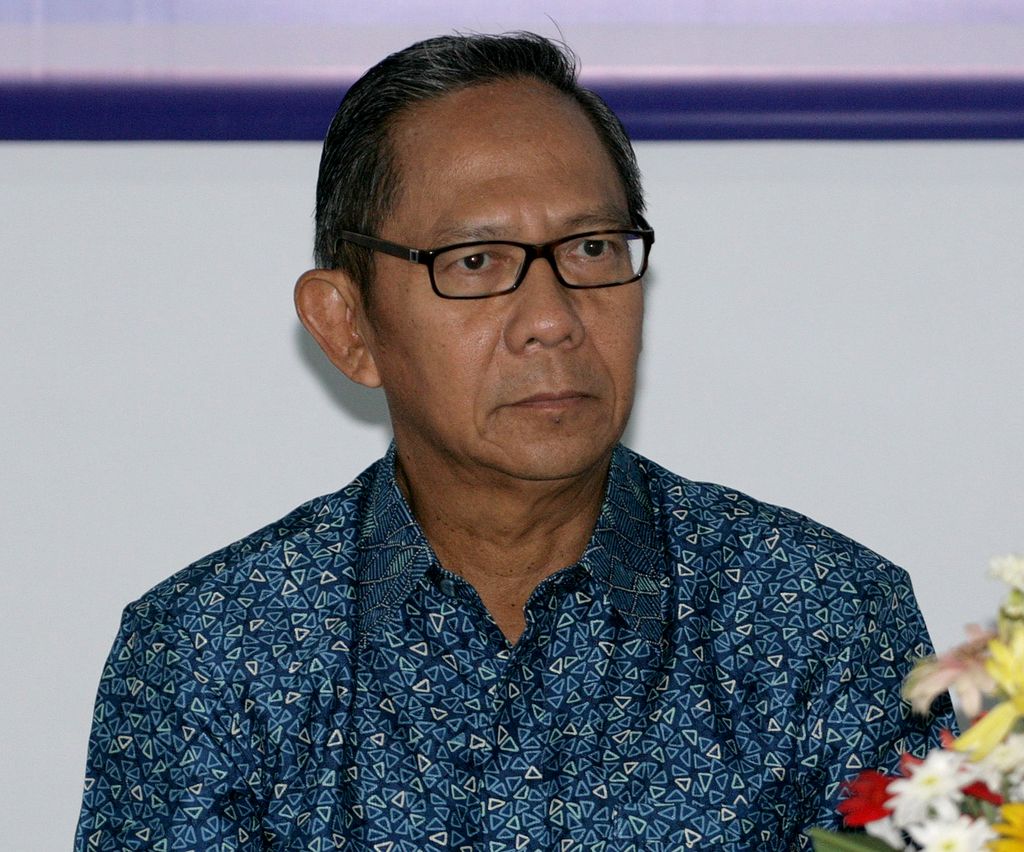Jokowi on the Big Stage
President Jokowi was convincing in his attendance at the G20 Summit in Rome, not only in representing Indonesia as a member state but also in assuming the group’s leadership as the next G20 host and chairman.

President Joko Widodo arrived in Glasgow, Scotland, Sunday (31/10/2021) at 21.40 local time. In Glasgow, the President will attend the COP26 Summit held 1-2 November 2021.
President Joko “Jokowi” Widodo’s visit to three countries for three different purposes has drawn the attention of not only the nation, but also the international community.
One article that appeared in Nikkei Asia some time ago was very interesting. Titled “Jokowi on the Big Stage”, the writer has adopted that article’s theme and title, purposely leaving the heading unchanged. Besides that article, many other comments in more or less the same vein have been made in several international media.
President Jokowi was convincing in his attendance at the G20 Summit in Rome, not only in representing Indonesia as a member state but also in assuming the group’s leadership as the next G20 host and chairman.
Also read:
> Spur New Economic Transformation
> Careful Acceleration-in 2022
> Serang-rangkasbitung Toll RoadBboost-Bantens Economy
At the United Nations Climate Change Conference (COP26) in Glasgow, the President was appreciated for voicing the aspirations of the developing world, that a collective effort was needed to deal with the climate crisis and the developed countries should not only make promises but also take concrete steps, especially in financing and technology transfers.
During his visit to the United Arab Emirates (UAE), President Jokowi revealed a consistent stance in that however important international cooperation forums might be, the top priority should be given to economic development, which required investments.
At various meetings abroad, writers, observers and intellectuals raised the question as to why Indonesia, which has the fourth largest population and is one of the largest economies in the world, international initiatives and roles were hardly ever proposed during the Jokowi government compared to previous administrations, including the era of Bung Karno (Soekarno) as the de facto leader of the Third World, the rule of Pak Harto (Soeharto) as the founder and de facto leader of ASEAN, and the administration of SBY (Susilo Bambang Yudhoyono), known for his dialogues on democracy.

President Joko Widodo conveyed three hopes regarding the relationship between ASEAN and the United States (US) in the future in his speech while attending the 9th ASEAN-US Summit which was held virtually, Tuesday (26/10/2021)
This writer’s answer is always the same: President Jokowi aims to prioritize efforts to promote public welfare through economic development, especially infrastructure and human development, which is essentially economic development through means such as education and health promotion.
Legacy
Various data and statistics have shown that President Jokowi succeeded in his first presidential term, reducing the poverty rate and unemployment while increasing connectivity and regional development. Early in his second term, this momentum of progress was disrupted, restricted or even reduced as a result of the Covid-19 pandemic, including his plan to relocate the nation’s capital.
All efforts and endeavors were refocused on the activities to overcome the pandemic on two fronts. The first front was the health sector, aimed at preventing infection and treating those affected. The second front was to keep the economy running and attempt to recover it in phases.
We are now preparing to deal with Covid-19 not as a pandemic but rather an endemic, although we must continue to remain vigilant against the possible emergence of new variants.
The evidence proves success on both fronts. The writer will not present any figures, but many international organizations, including academic ones, have stated that Indonesia’s pandemic response is among the best in the world. We are now preparing to deal with Covid-19 not as a pandemic but rather an endemic, although we must continue to remain vigilant against the possible emergence of new variants.
On entering the middle of President Jokowi’s second leadership term, it is impossible for anyone with an objective mindset to deny the various accomplishments that have been made, say, in comparison with the achievements of other countries in the region or peer countries.
Today, President Jokowi has entered the international political arena through his exposure in diverse international media, including the one mentioned above. With his demonstrated performance in the three events, President Jokowi’s international role and leadership will continue and rise. In 2022, Indonesia will chair and host the G20 Summit and in 2023, the ASEAN Summit.

Didie SW
President Jokowi is expected to have the capacity to embrace Indonesia’s conciliatory role in the highly uncertain international situation, particularly in the Asia-Pacific. All powers in this region, especially China and the United States, have indeed expressed no desire for escalation. However, the issues of Taiwan and the South China Sea are very vulnerable, and the rhetoric we have heard has not alleviated the fear of imminent conflict. This is not to mention North Korea as a factor, with its nuclear arsenal.
In Southeast Asia is the Myanmar crisis that continues to be a thorn in our side. In the past, Indonesia took a major role in to easing regional tensions, a role that the country is expected to resume.
We pin our hopes on President Jokowi’s flair for navigating both the international and regional situations for the next two years, alongside the joint efforts needed to win the war against the Covid-19 pandemic and rebuild the world economy. Tackling the debt problem will be an especially heavy economic burden for many countries in the years to come.
Bilateral economic cooperation, in particular with Japan, needs to be restructured by prioritizing not just investments and trade, but also technology and the environment.
All economic achievements, the success in handling the pandemic as well as the country’s increasingly solid role on the international and regional stage, in ASEAN and the Indo-Pacific, will create Jokowi’s legacy as the President.
Warning bell
Nonetheless, in the same vein, it must be acknowledged that despite the progress that has been achieved, many problems remain, even as new issues are emerging. We can see and hear the public’s complaints about the great difficulties we are confronting as a nation. We can observe the various disappointments and unfulfilled expectations. One of the most intriguing voices belongs to Buya Syafii Maarif, which was raised in the opinion column of this daily.
Buya is a highly respected academic figure, religious leader and intellectual. His concerns are worthy of reflection, even more so because he is currently part of the government as a member on the steering committee of the Pancasila Ideology Development Agency (BPIP) chaired by Megawati Sukarnoputri, the country’s fifth president.
We should accept them as a wake-up call and a whip to make improvements.
The criticisms and introspection Buya has conveyed should not make us feel downhearted or lose confidence. We should accept them as a wake-up call and a whip to make improvements.
All countries in the world, however advanced they may be, have problems. For example, the US, a superpower and a country that has been established for around 250 years, has undergone a variety of fierce challenges, ranging from a civil war, to two world wars and to major conflicts that claimed numerous victims like those in Korea and Vietnam.
Take a look at the furor over the 2020 presidential election that still lingers in its aftermath. The values of justice, freedom, and human rights remain major issues in the country that has become the key reference among the world’s countries on democracy, economic system, science and technology, even living standards and lifestyle.
Civility
In viewing the ongoing developments it is legitimate to have different perspectives. Democracy enables us to dissent, and even the very existence of differences is characteristic of democracy. The challenge is to safeguard democracy so it can truly serve as the best path to building the future and resolving problems.
Political contests can be tough and harsh, but it has rules and morals, in brief, manners.
It is manners that are frequently ignored or neglected, and therefore it is necessary to make a constant reminder. The public space and domain must be respected, public interests must be sacrosanct and never marred or violated, let alone by using the legitimacy that has been entrusted by the public.
As Winston Churchill mentioned, democracy is not the best system, but no better one has been devised. So let us strive to practice it in the best possible and most honest way through respectable means and without blemishing the values of truth and propriety that characterize our national culture.

Ginandjar Kartasasmita
Ginandjar Kartasasmita, Former Coordinating Minister for the Economy, Finance and Industry/Head of the National Development Planning Agency
(This article was translated by Aris Prawira).